new to the gluten free journey?
new to the gluten free journey?
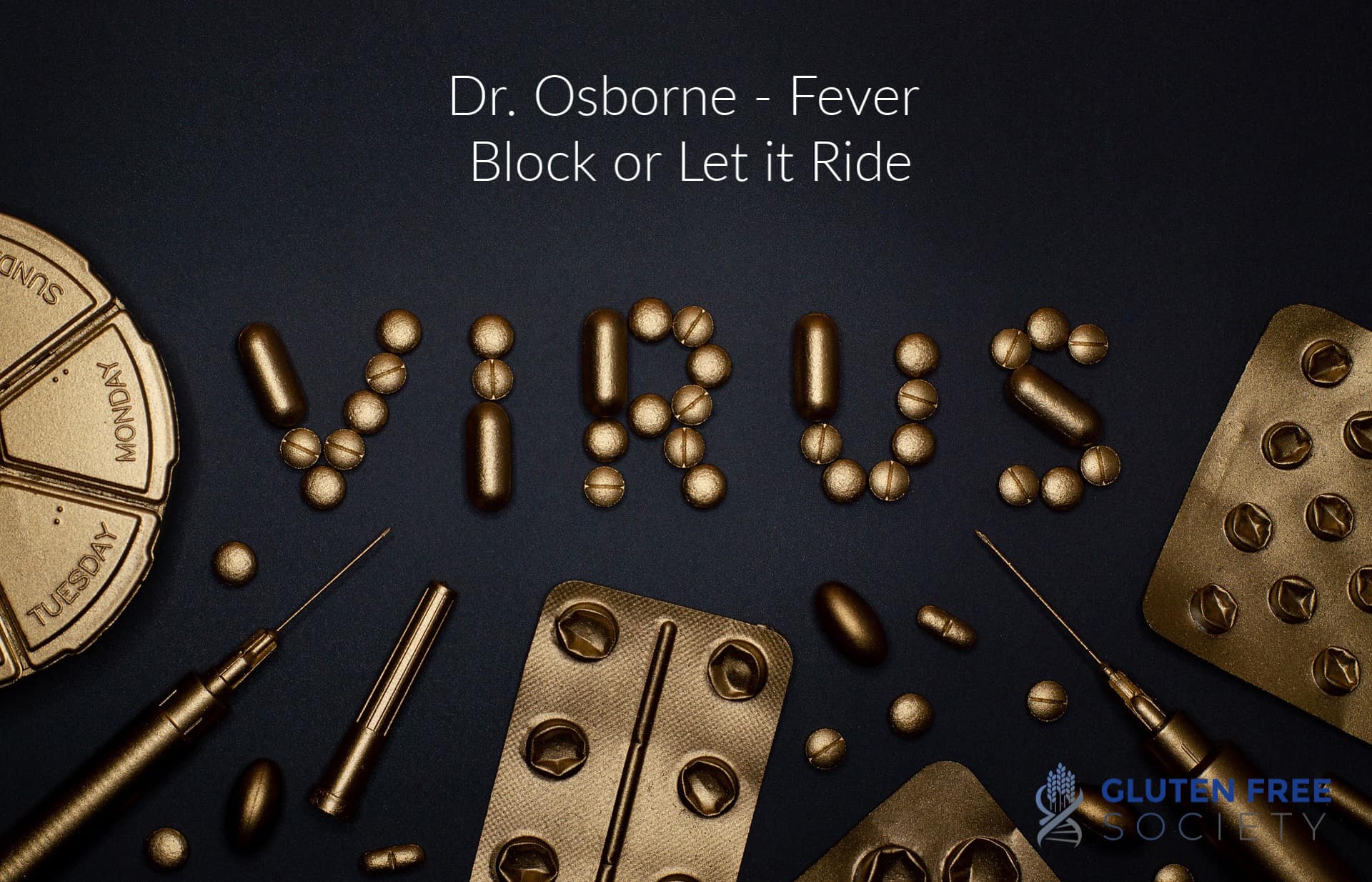

Since the Coronavirus or COVID-19 is a novel virus, it feels like the information we receive on it changes daily, if not hourly. This makes it extremely difficult to know who to trust and what to believe. The French Health Minister recently reported that NSAIDs are not good to use with this virus, but the World Health Organization just stated they saw no harm in using them. So what exactly are NSAIDs and how will they affect us if we take them for COVID-19?
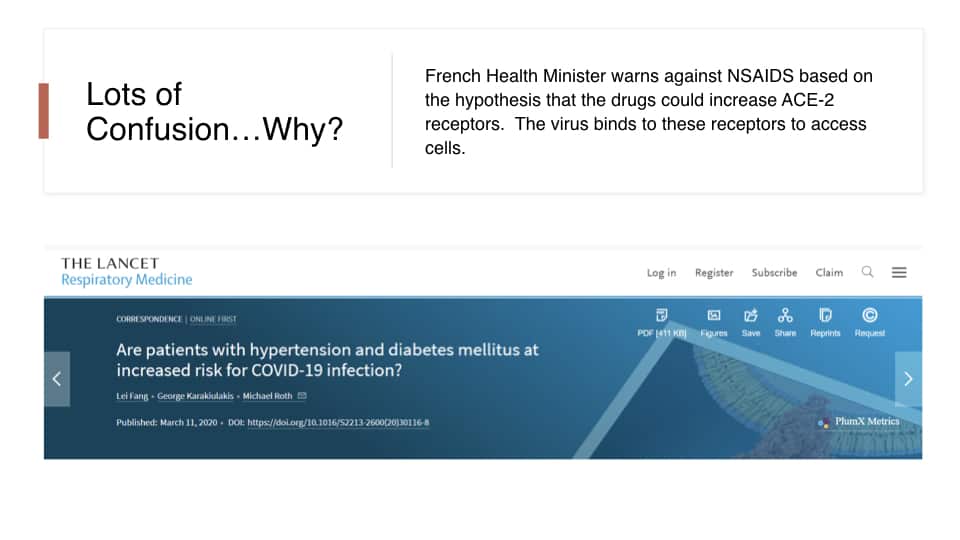
Contents
Toggle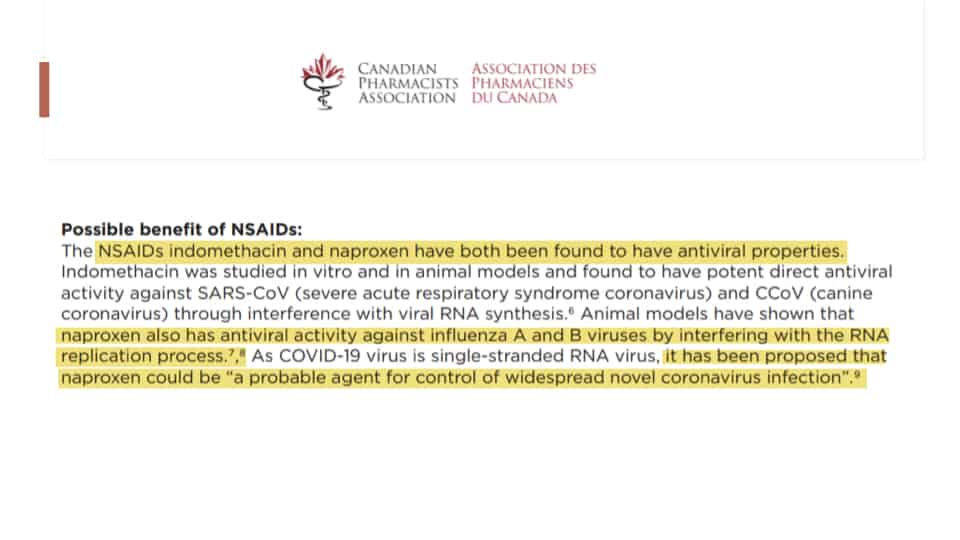
NSAIDs or nonsteroidal anti-inflammatory drugs are essentially medication that blocks fevers and inflammation. They are more commonly known as ibuprofen, aspirin, and naproxen. When taken, they increase the quantity of ACE-2 (angiotensin-converting enzymes) receptors which sit on the surface of cells and allow items into it.
Additionally, they block cyclooxygenase (Cox-2) which is an enzyme in the cell membrane. When the cell is damaged, Cox-2 enzymes act on that damage causing the byproduct of pain, inflammation, and increased permeability of blood vessels, leading to swelling. By blocking this enzyme, NSAIDs allow for pain and inflammation to be reduced.
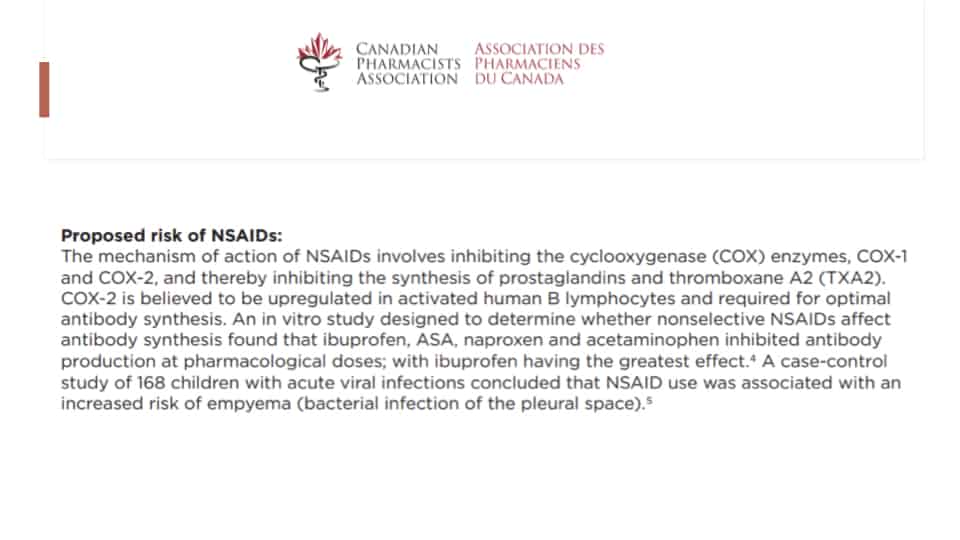
So why is there a fear of taking this type of medication with the coronavirus? One of the biggest factors relates to the ACE-2 receptor cells. These increase with NSAIDs, allowing more places for the virus to attach and ultimately get into the cell. Once in the cell, the virus can get into the DNA and begin replicating itself. This can cause an individual to experience greater symptoms and ultimately have a more aggressive case.
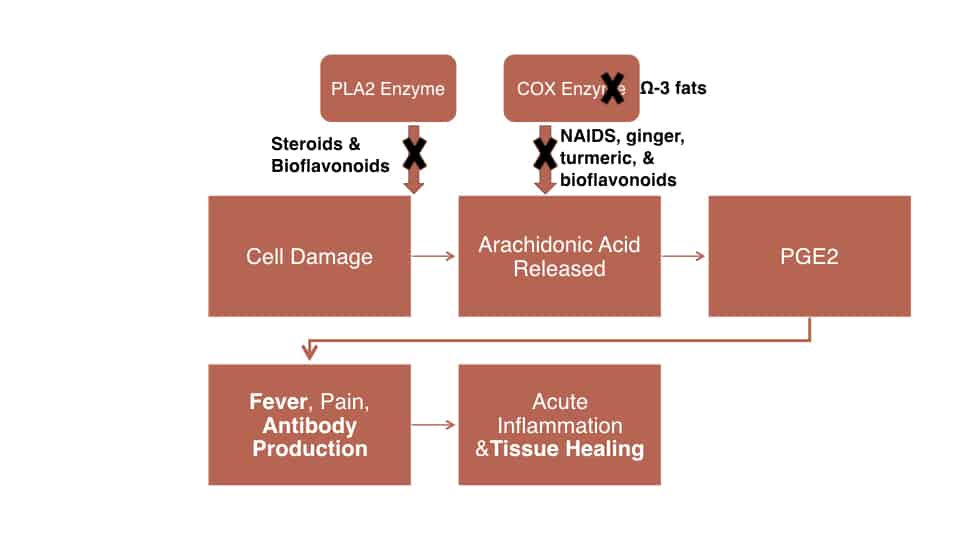
Additionally, when we have pain and inflammation, it is the result of PGE2 or prostaglandin E2. PGE2 increases antibody production starts a fever and stimulates pain. However, if medication blocks the enzyme from doing this, it blocks the body’s ability to make antibodies and ultimately fight off the virus.
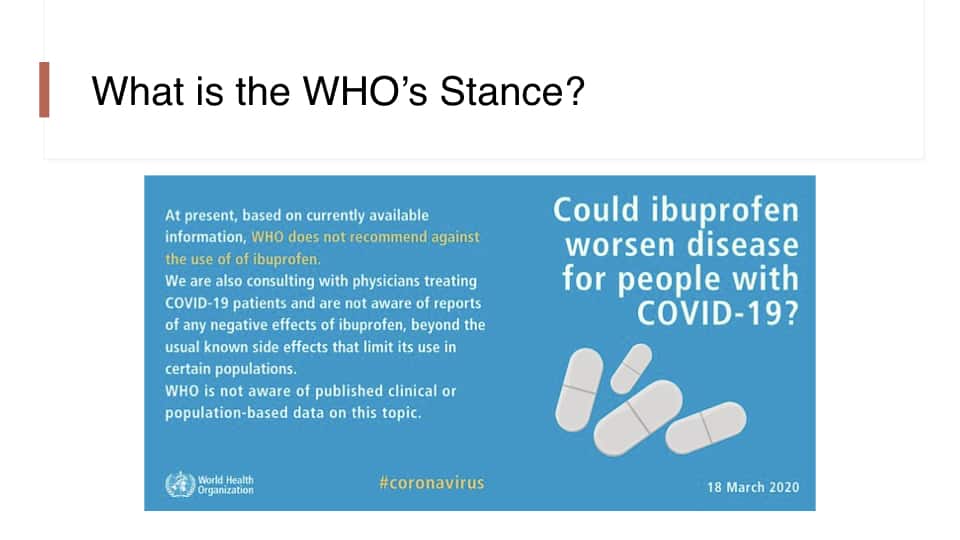
As mentioned, as of March 18, 2020, the WHO currently recommends using NSAIDs. There aren’t really any studies, at this time, that explains how these drugs may work with COVID-19, but they do have antiviral properties with influenza and it is believed they may help reduce the replication of viruses. It’s important to know that NSAIDs kill about 13,000 people annually, so it’s best to take them occasionally in the event of high fever and not on a regular basis.
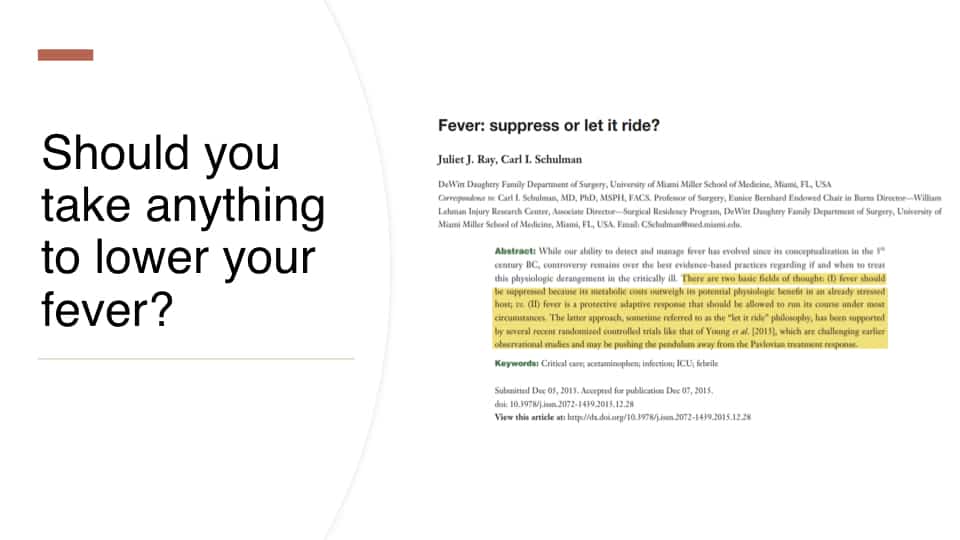
Additionally, it’s important to remember that these drugs block inflammation, but not all inflammation is bad. Typically, inflammation means that the immune system is sending fluid, blood, and cytokines to help fight and heal the body. Therefore, blocking inflammation may not be ideal, unless absolutely necessary to save a life.
On the other hand, Tylenol or acetaminophen is also a fever reducer, but is not considered an NSAID and will not come with some of the risks those types of medications pose. However, Tylenol will lead to a reduction in glutathione. Glutathione is one of the main antioxidants in the lungs that protect from things like pneumonia and inflammation. It also is used in the liver to detoxify.
While this reduction is primarily seen in patients that consistently use this medication, it’s always important to weigh the risks. Having a medication that can lower fever and allow the body to rest and recover may be worth it, if only temporarily.
So, apart from a fever reducer, what can be done to help with COVID-19? One plant-based ingredient that is known to have some promise with other viruses and is beginning to be looked into further is called quercetin. While not quite a nutrient, it is considered a bioflavonoid. It is a natural anti-inflammatory, and though not as powerful per gram as a steroid, it can have a nice effect if taken as a preventative measure.
With several anti-viral properties, quercetin can reduce the risk of developing upper airway disease and respiratory tract infections. Additionally, it has been known to:
Despite all of these, it’s important to note that quercetin is not a fever reducer. It can help modulate inflammation, but will not bring down a high fever.
Because quercetin is such a powerful boost for the immune system, some are starting to use it in testing against viruses. Most studies up to this point have not been done on humans, but the results still show great potential. One new study has even shown a good affinity for binding the COVID-19 main protease (or one of the main proteins), which could be a potential therapeutic benefit.
Furthermore, quercetin may be a good option in the absence of Vitamin C. Many are starting to report a shortage in Vitamin C supplements, which is also an excellent source of anti-viral properties. However, if quercetin can be located, consider taking it instead, or both if supplies are available.

Despite access to medication, many feel that it is best for a fever to run its course. They feel it is the natural and normal response of the body to illness and nothing should interfere with that. However, if the body is not able to function well enough to fight off the virus, a fever reducer may be the best shot at beating it. And, taking Tylenol or an NSAID temporarily should not impact the body as severely as taking it long-term.
In the end, it is your call to make. Be sure to consider your normal body temperature, as some individuals run a higher or lower body temperature, on average, making a fever more or less severe depending on how high it runs. Do your own research from trusted sources and, as always, speak with your doctor about the risks involved with any medication before coming to your own conclusion.
Written and medically reviewed by Dr. Peter Osborne. Updated on April 10, 2020